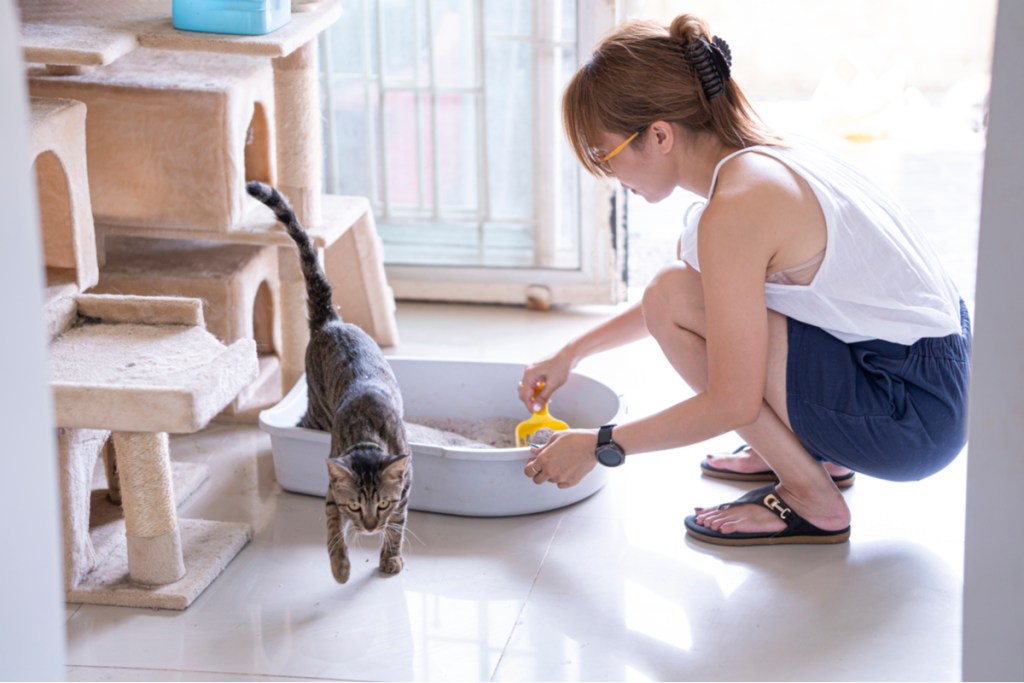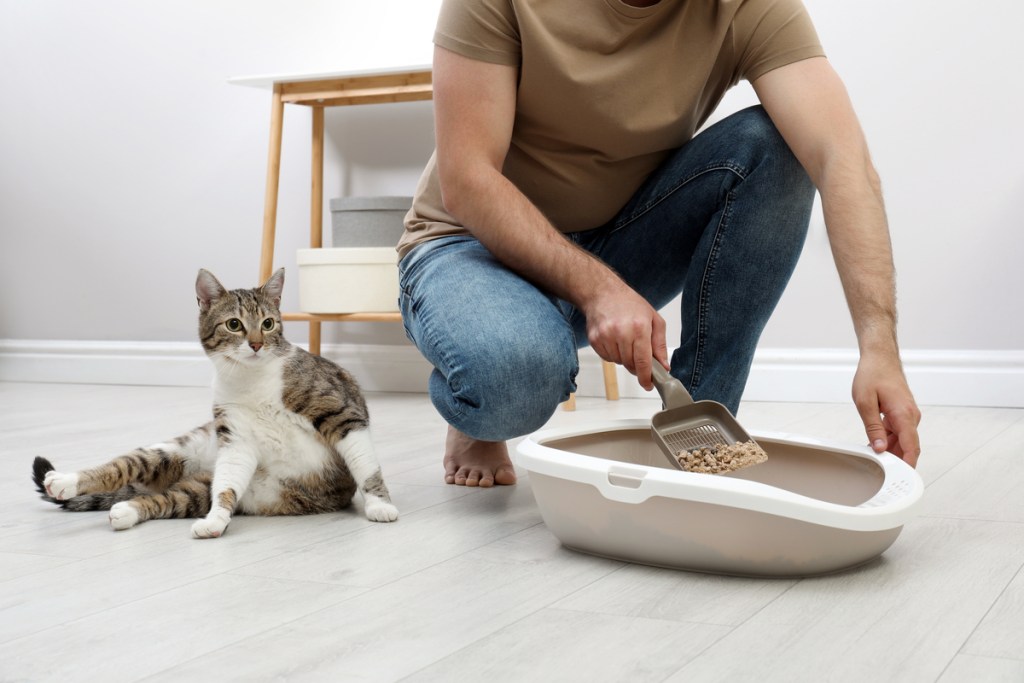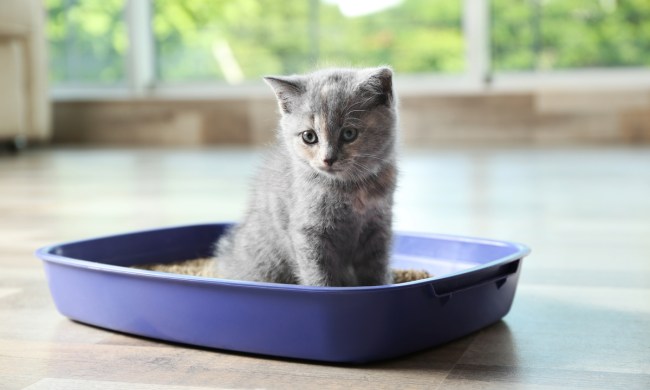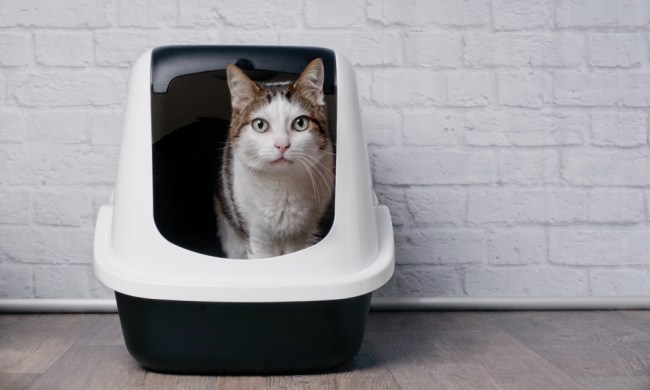Cleaning litter boxes is a standard part of having a cat, but some boxes are more difficult to clean out than others. Sometimes litter sticks to the box, and then you have to scrub and scrape to get it out. It can make for a time-consuming and frustrating chore, but there are simple solutions to this common problem. When you understand how to keep litter from sticking to the sides of the box, you can save time and make cleaning out the boxes easier. These five strategies can help solve this pesky problem so you don’t have to dread litter box cleaning time.
Try a nonclumping litter
Clumping litter can make the sticking issue worse, adhering to the box and turning into a sort of glue. If you’re using clumping litter and are having this problem, switch to a nonclumping litter and see what happens. That litter change might solve the problem entirely.
If it doesn’t, experiment with using more litter. Deeper litter has more time to absorb urine before it gets down to the box bottom and might prevent the sticking issue. If your cat likes to paw enthusiastically before doing his business, though, this technique might not work.

Use baking soda and cooking spray
When you clean the litter box, wash it and dry it and then apply cooking spray and baking soda. Start by spraying the box bottom with the cooking spray, then immediately sprinkle baking soda over it. Next, add the litter.
The spray-and-baking-soda combination helps keep the litter from sticking to the box. It makes for easier cleanings, but just be sure to repeat the process every time you clean out the box.
Use litter box liners
Litter box liners are an easy way to keep litter from ever coming into contact with your box sides and bottom. They’re simple to use and you apply them before you fill the box with litter. For the best results, choose liners that fit your box well. Most have convenient handles that let you lift the whole liner out of the box, litter and all, for supereasy cleaning.
Since the litter never comes into contact with the box sides, there’s no scraping or stuck-on litter to deal with. You’ll save time on the overall cleaning process, too.
Change your litter box
As litter boxes age and get used, cats can scrape up the bottom and the sides. This removes the slick surface, leaving it rough and easier for litter to stick to. Buying a new box can help.
When you have your new box, try waxing it to help keep litter from sticking. You can get a wax paste that you can apply with a rag, or get a wax stick that you can rub across the box’s surfaces. Be thorough with the wax, and you should see some good results. Applications can last for a month or two, depending on the box’s usage.

Get a self-cleaning litter box
If you’re really over scraping up cat litter, consider a self-cleaning litter box. These boxes clean themselves promptly after a cat uses them, and they sift away waste without giving it time to stick to the box sides or bottom. Not only does a self-cleaning box save you from having to scrape up cat litter, but it also saves you from most of the litter box cleaning you would have to do. While this is the most expensive solution, it’s an effective one.
In addition to the tips above, it’s important to clean your cat’s litter box regularly. Make a point of scooping the box daily, which leaves urine with minimal time to sit. This has the added advantage of keeping the box smelling better, so your cat is more likely to use it. If you have multiple cats, then you’ll need to thoroughly change and clean the boxes more frequently, so experiment with cleaning frequency and see if it helps. You might find that a combination of a few of the above tips is what works just right for you. With a little extra effort, you can keep litter from sticking to the boxes, and cleaning them will be easier and less time consuming as a result.


